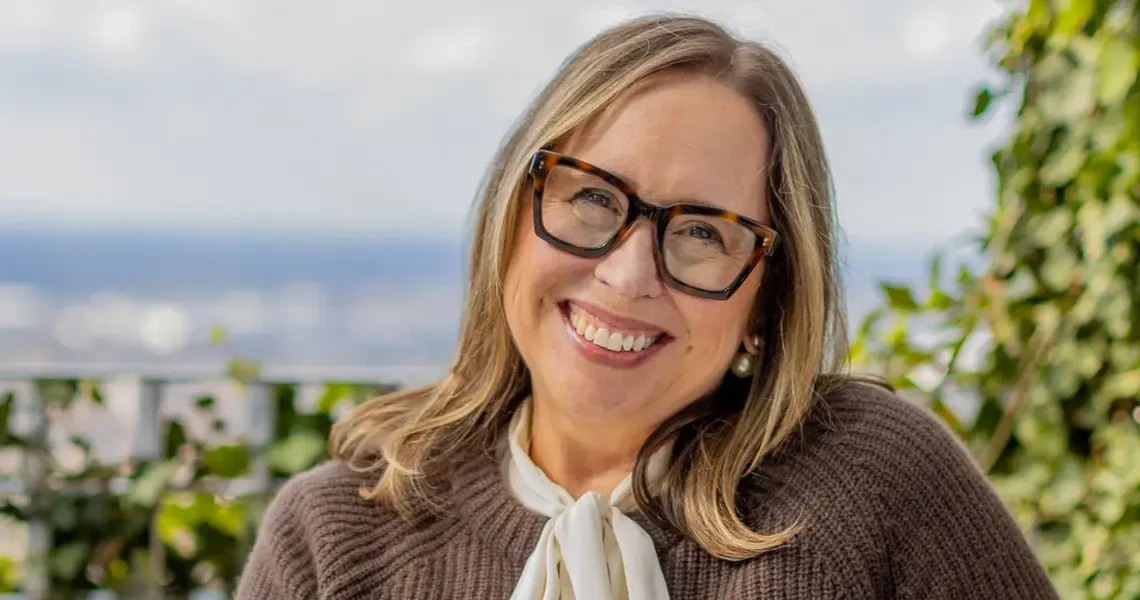Michelle Carnahan spent four years as the president of VC-backed healthcare startup Thirty Madison, and before that, had a two-decade-long career at pharmaceutical giant Eli Lilly. Now, she’s launching her own startup without a drop of VC funding.
Arbiter, Carnahan’s latest venture, has raised $52 million in seed funding at a $400 million valuation, Business Insider has learned exclusively.
Instead of turning to VCs, Carnahan raised the round from multiple family offices, which are essentially private investment firms that manage all aspects of a wealthy family’s finances. TriEdge Investments and MFO Ventures co-led the round, joined by private equity firm WindRose Health Investors.
Arbiter’s platform connects patient data to automate administrative tasks on behalf of healthcare providers and health plans, including referrals and appointment scheduling. The healthcare AI startup is only 6 months old, but its tech is already live with over 1,000 clinicians, which Carnahan credits to Arbiter’s family office backing.
Carnahan has spent most of her career at Big Pharma, including a 26-year stint at Eli Lilly. She was at Thirty Madison during the 2021 VC funding boom, when the startup notched a $1 billion valuation. This September, Thirty Madison was acquired in an all-stock deal for over $500 million.
Carnahan said she didn’t set out to avoid VC money, despite having witnessed the boom-and-bust cycle firsthand.
Instead, she said she turned to family offices because Arbiter was looking for more than just capital — the company wanted specialized healthcare investors who could bring their tech to market fast.
“This gives us not only a knowledge advantage, but a distribution advantage in partnerships that would take years to develop,” Carnahan said.
Conducting a healthcare orchestra
Carnahan met Dr. Eric Moskow, cofounder and chairman of MFO Ventures, in 2022 while she was at Thirty Madison. They bonded over their frustrations with how fragmented the healthcare system had become, with data siloes and countless single-solution software products.
With the early promise of Moskow’s backing, Arbiter acquired a data platform from SecondWave Delivery Systems, a healthcare company Moskow founded in 2020, along with the platform’s customers and some employees. The software pulls patient data from different medical records into one place and evaluates patient health risks and other clinical factors to help doctors make better treatment decisions.
Carnahan said the deal accelerated Arbiter’s path to market by 18 months. Arbiter didn’t disclose exactly how much it paid for the tech, but said the deal represented a small portion of its seed funding. The company said it also signed an agreement with SecondWave to allow SecondWave to continue selling to its broader customer base, which gives Arbiter contracted multi-year revenue.
On top of SecondWave’s data layer and risk adjustment capabilities, Arbiter is building AI infrastructure in-house to automate more actions across payers and providers.
Its first application uses AI agents to proactively reach out to patients, schedule appointments, and follow up with them after visits. That patient engagement tech is live with several health plans, Carnahan said.
Arbiter plans combine all of its capabilities into a unified “operating spine” for healthcare, which Carnahan said will launch next year with a major national payer and provider network, focused on automating referrals. She declined to share the names of those partners.
“Everyone keeps building new instruments for the orchestra. There’s a prior auth tool here, an analytics dashboard there, but no one’s building the conductor. Arbiter is that conductor,” Carnahan said.
More M&A ahead
Arbiter is considering additional acquisitions to further boost its growth.
The startup is looking for solutions with a clear data strategy — Arbiter can make the tools more AI-forward, but it wants a solid data foundation for the AI first, Carnahan said. She’s also considering technology that can take actions leading up to a doctor’s visit, such as prior authorizations or supporting care in non-hospital settings, like the home.
Ultimately, Arbiter wants to move healthcare from reactive to proactive, including by using predictive AI modeling to forecast events such as disease onset and hospital stays.
Because Arbiter has big ambitions, it faces a full field of competitors, from AI-powered patient engagement startups like Hippocratic AI to companies that focus on freeing up healthcare capacity like DexCare.
Arbiter has assembled a top team of board members and clinical advisors to take on that challenge, including Dr. Clive Fields, an Arbiter board member and the cofounder of VillageMD, and Dr. Ainsley MacLean, a clinical advisor and the former chief medical information officer at health system giant Kaiser Permanente‘s mid-Atlantic Permanente Medical Group.
After 13 years in leadership roles at Kaiser Permanente, MacLean started her own private equity firm this year to back healthcare AI companies — and she thinks Arbiter’s tech can lay the groundwork for the innovations she wants to invest in.
“I see Arbiter as the Palantir of healthcare,” MacLean told Business Insider. “It’s that kind of play, but with the deep connections, trust, and understanding of healthcare that will make them successful.”
Read the original article on Business Insider
The post This former Eli Lilly exec just raised a $52 million seed round from family offices to build a new healthcare AI startup appeared first on Business Insider.




